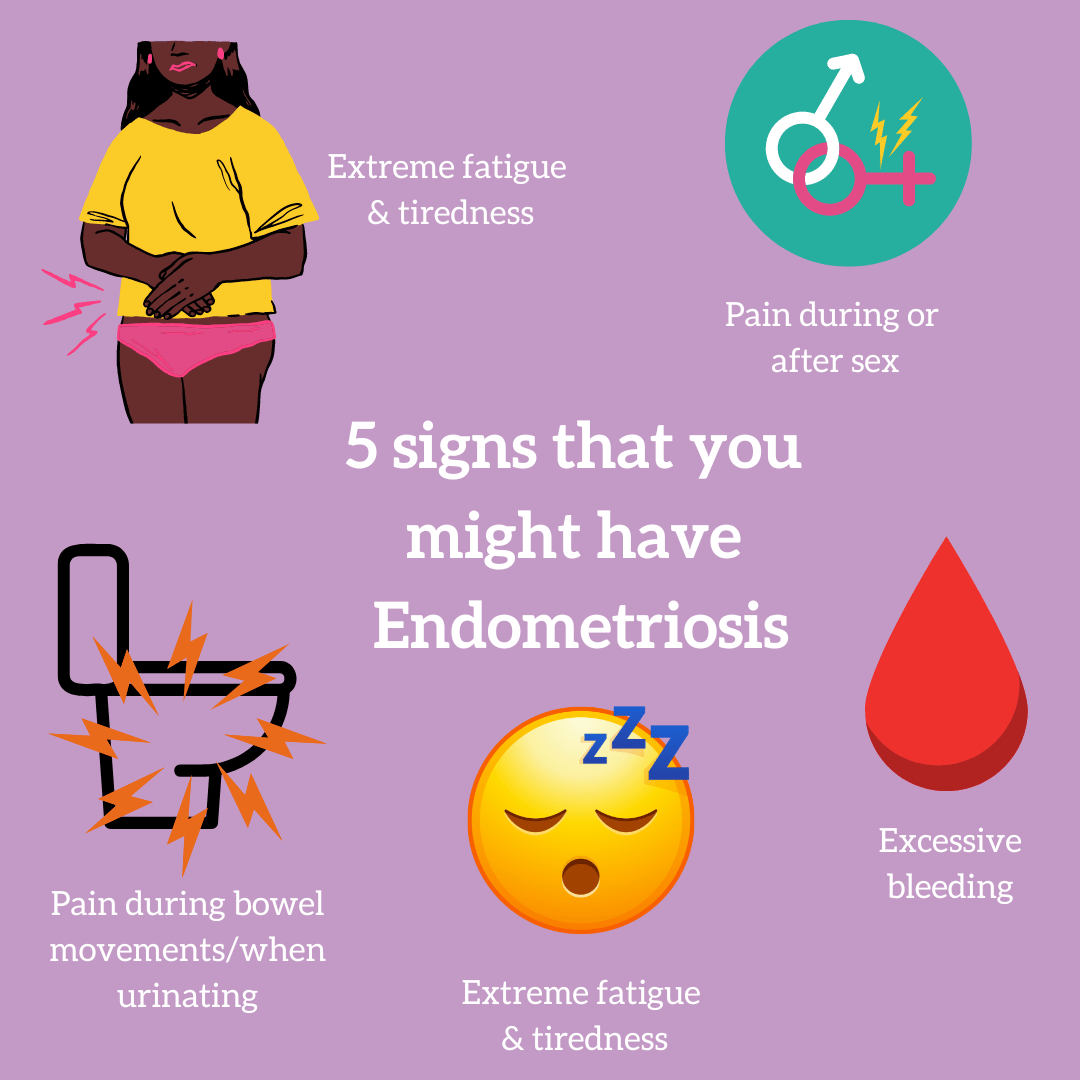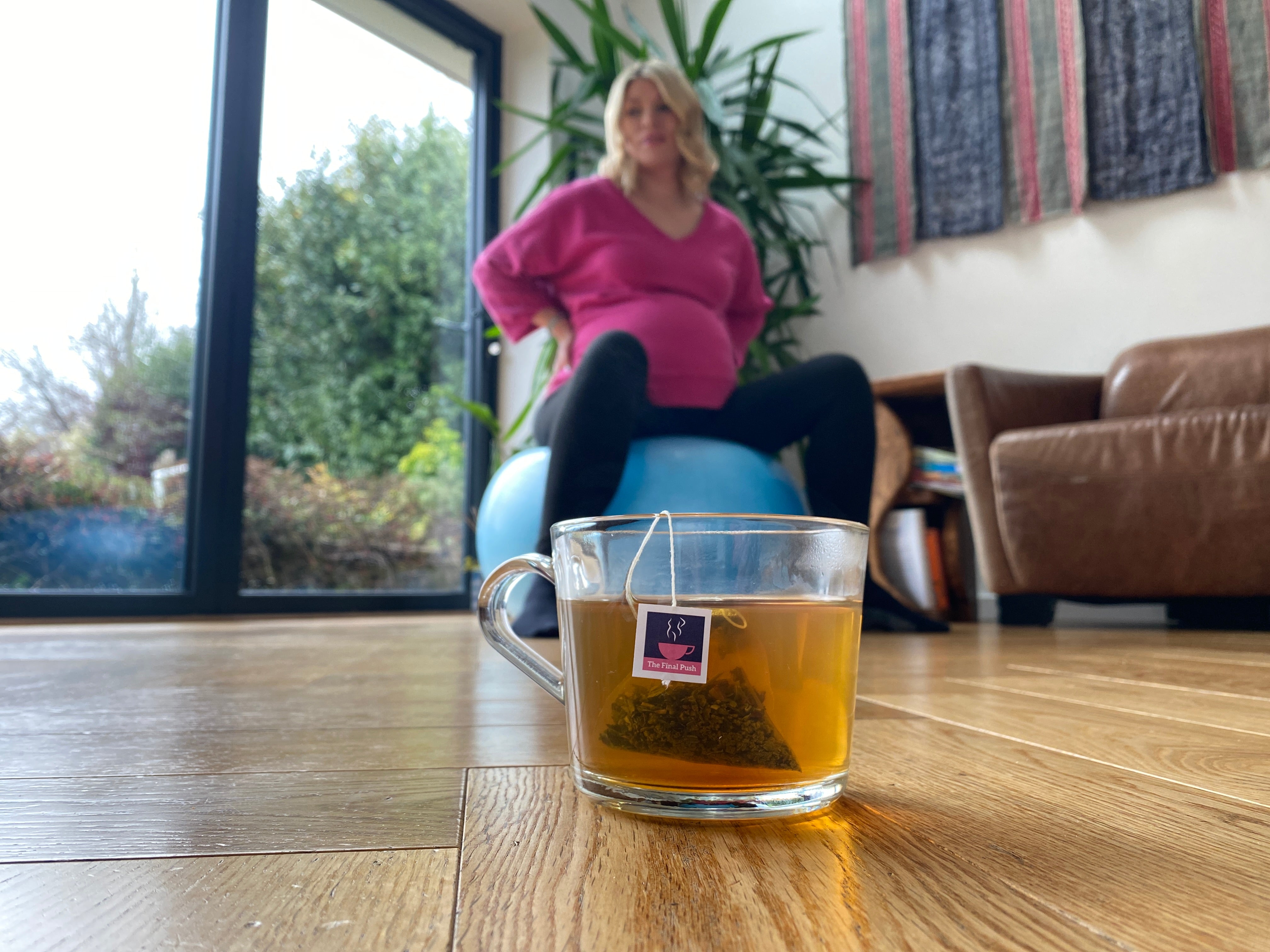5 signs that you might have Endometriosis

Endometriosis is where cells similar to those in the lining of the womb (uterus) grow in other parts of the body. It often affects the ovaries, fallopian tubes and the tissue lining the pelvis. Rarely, endometriosis growths may be found beyond the area where pelvic organs are located.
Endometriosis is a condition which can affect anyone who has periods, from the beginning of your cycle as a teenager, right through to Menopause. It can have a big impact on your life, but there are treatments that can help.
5 signs that you may have Endometriosis include:
1) Extremely painful periods. Pelvic pain and cramping may start before a menstrual period and last for days into it. You also may have lower back and stomach pain.
2) Pain during or after sex.
3) Pain with bowel movements or urination. You're most likely to have these symptoms just before or during your period.
4) Excessive bleeding. Sometimes, you may have extremely heavy menstrual periods (changing sanitary products every 1 - 2 hours) or bleeding between periods.
5) Extreme tiredness & fatigue.
You may also have difficulty getting pregnant and have low mood or anxiety.
Diagnosis
Endometriosis takes on average 6.6 years to get diagnosed, and you may need several different tests to find out if you have it. This is because endometriosis symptoms can be similar to other conditions, such as - adenomyosis, fibroids, or irritable bowel syndrome (IBS).
Possible tests include:
- a physical examination (including an internal vaginal exam) – to check your tummy (abdomen) and your pelvic area
- blood tests
- an ultrasound scan – this may be an internal vaginal scan
- a laparoscopy (where a camera is passed through a small cut in your tummy) – this can confirm if you have endometriosis.
Treatment
Your GP will often recommend medicines as the first treatment for endometriosis, such as painkillers, such as paracetamol and ibuprofen. Or they can prescribe
hormones, such as the combined contraceptive pill – these can help ease pain.
If other treatments are not working or you have lots of endometriosis, you may be offered surgery. Surgery is also an option if endometriosis is affecting your ability to have children.
The surgery will remove areas of endometriosis or fluid-filled sacs (ovarian cysts) caused by endometriosis. You may also have part of your bladder or bowel removes if endometriosis is affecting these. In more severe cases, you may need surgery to remove your womb (hysterectomy) or ovaries (oophorectomy)
Endometriosis is different for everyone, and treatment can usually help to manage symptoms.
Please book an appointment to see your GP if you think you may have endometriosis, or visit the NHS website for further information and support.
Period & cycle collection




Comments